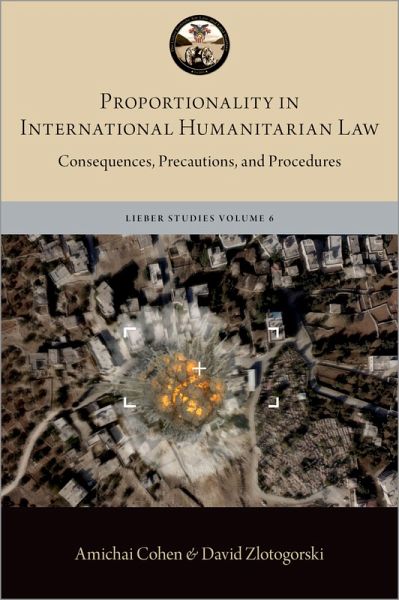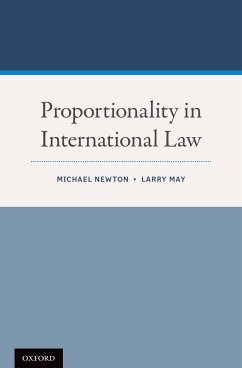
Proportionality in International Humanitarian Law (eBook, PDF)
Consequences, Precautions, and Procedures
Versandkostenfrei!
Sofort per Download lieferbar
46,95 €
inkl. MwSt.
Weitere Ausgaben:

PAYBACK Punkte
23 °P sammeln!
The principle of proportionality is one of the corner-stones of international humanitarian law. Almost all states involved in armed conflicts recognize that launching an attack which may cause incidental harm to civilians that exceeds the direct military advantage anticipated from the attack is prohibited. This prohibition is included in military manuals, taught in professional courses, and accepted as almost axiomatic. And yet, the exact meaning of the principle is vague. Almost every issue, from the most elementary question of how to compare civilian harm and military advantage, to the oblig...
The principle of proportionality is one of the corner-stones of international humanitarian law. Almost all states involved in armed conflicts recognize that launching an attack which may cause incidental harm to civilians that exceeds the direct military advantage anticipated from the attack is prohibited. This prohibition is included in military manuals, taught in professional courses, and accepted as almost axiomatic. And yet, the exact meaning of the principle is vague. Almost every issue, from the most elementary question of how to compare civilian harm and military advantage, to the obligation to employ accurate but expensive weapons, is disputed. Controversy is especially rife regarding asymmetrical conflicts, in which many modern democracies are involved. How exactly should proportionality be implemented when the enemy is not an army, but a non-state-actor embedded within a civilian population? What does it mean to use precautions in attack, when almost every attack is directed at objects that are used for both military and civilian purposes? In Proportionality in International Humanitarian Law, Amichai Cohen and David Zlotogorski discuss the philosophical and political background of the principle of proportionality. Offering a fresh and comprehensive look at this key doctrine, they comprehensively discuss the different components of the proportionality "equation" - the meaning of "incidental harm" to civilians; the "military advantage" and the term "excessive". The book proposes the debates over the principle of proportionality be reframed to focus on the precautions taken before the attack along with the course States should follow in investigations of the violations of the principle.
Dieser Download kann aus rechtlichen Gründen nur mit Rechnungsadresse in A, B, BG, CY, CZ, D, DK, EW, E, FIN, F, GR, HR, H, IRL, I, LT, L, LR, M, NL, PL, P, R, S, SLO, SK ausgeliefert werden.













